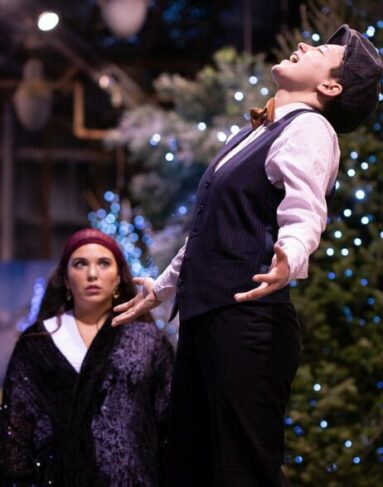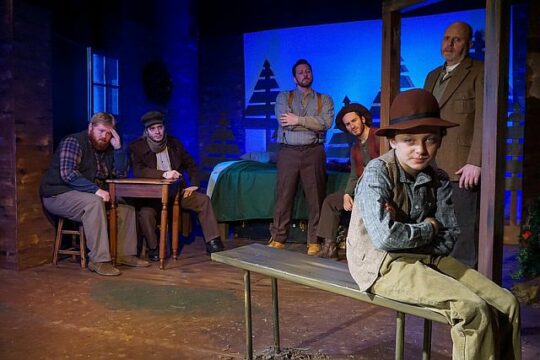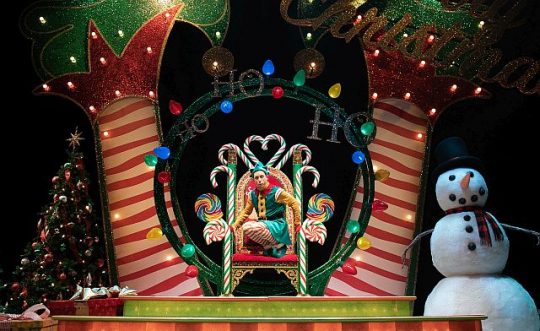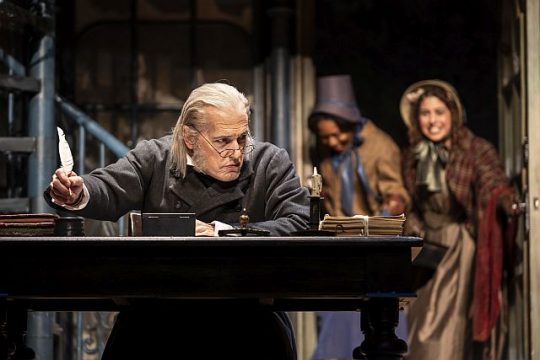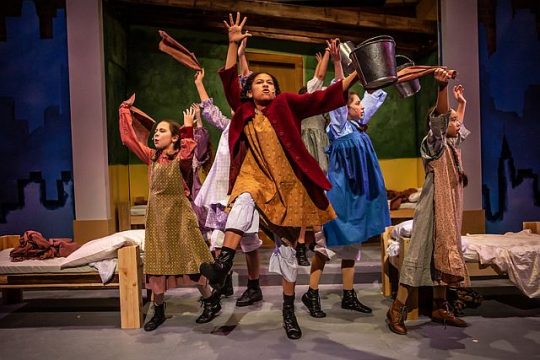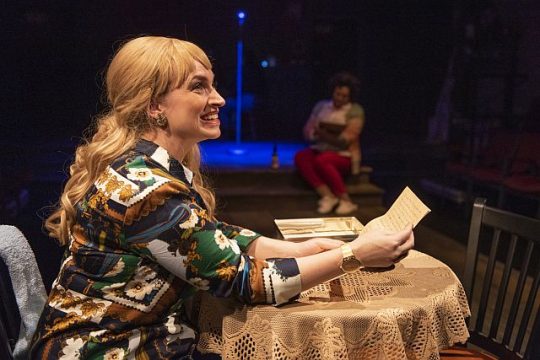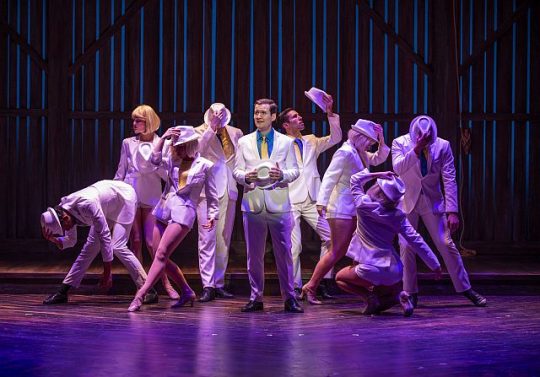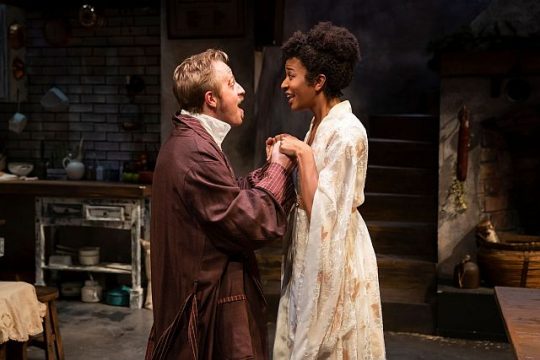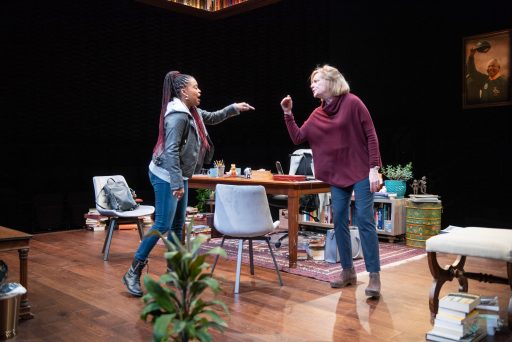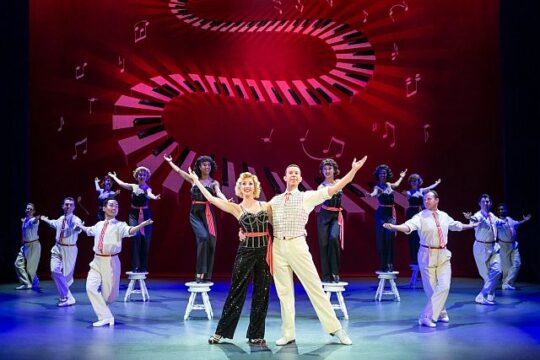
4stars
It didn’t matter that outside temperatures were diving into the icy teens because inside the Cadillac Palace Theatre, Tuesday, “Irving Berlin’s White Christmas” was warming the hearts of families and veterans with “Happy Holidays,” “Count Your Blessings” and “We’ll Follow the Old Man.”
But good as Berlin’s music and lyrics and David Ives and Paul Blakes’ book are, what makes the touring production now playing in Chicago worth its four stars is its talented cast and Randy Skinner’s excellent choreography and direction.
There are the perfectly executed dance numbers by a superb ensemble and the wonderful dancing of Kelly Sheehan as Judy Haynes and Jeremy Benton as Phil Davis. Plus, there is the beautiful voice of Kerry Conte as Betty Haynes and the Martha Raye-style singing and acting of Lorna Luft as Martha Watson.
Continue reading “Old fashioned musical fills Cadillac Palace Theatre with joy”

